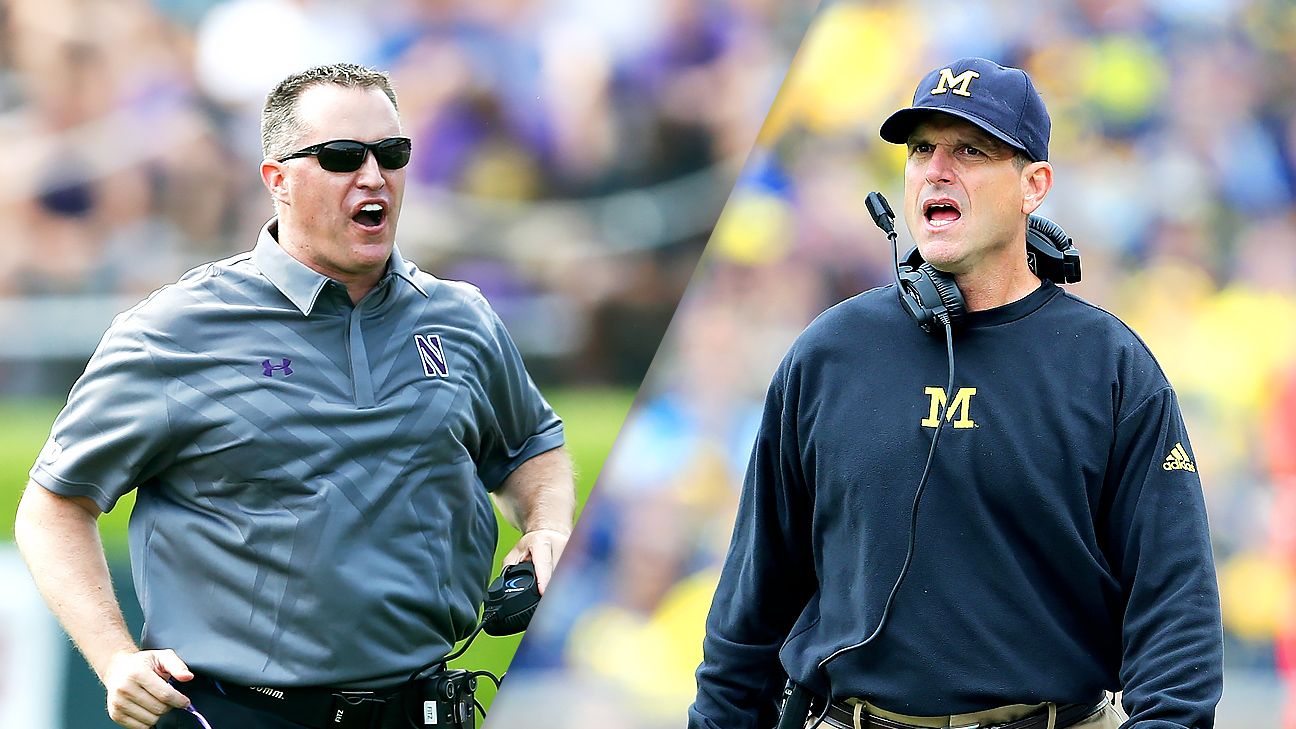Michigan and Northwestern will begin playing for the George Jewett Trophy this upcoming season, a new rivalry trophy that honors the first Black player in Big Ten history, who competed for both teams in the 1890s.
The Jewett Trophy becomes the first rivalry trophy in the FBS named for a former Black player. Jewett played fullback and halfback at Michigan in 1890 and 1892, and then played two more seasons for Northwestern while completing his medical degree. He was Michigan’s leading scorer, rusher and kicker during his career at the school, and also stood out on defense.
“This is a historic moment in major college football history,” Michigan athletics director Warde Manuel said in a prepared statement. “We are proud to partner with our peer institution, Northwestern, to recognize and honor an African American pioneer in George Jewett. George achieved at a high level as an athlete and doctor. His hard work and effort led to success not only for himself, but for those who would follow a similar path after him. His excellence at two Big Ten institutions as a student, athlete and citizen is something we want our current student-athletes to aspire to during their collegiate experience. The George Jewett Trophy will become a proud celebration of the importance to diversity on our teams, campuses, and in our society.”
Michigan and Northwestern will first play for the Jewett Trophy on Oct. 23 at Michigan Stadium. This becomes the Big Ten’s 16th rivalry game trophy — the third for Michigan (Little Brown Jug, Paul Bunyan Trophy) and second for Northwestern (Land of Lincoln Trophy). The Wolverines lead the all-time series 58-15-2, and has won the past six meetings, including the most recent in 2018.
Several rivalry games featuring FCS teams are named for Black players, including those featuring teams from historically Black colleges and universities.
“We are proud that the University of Michigan and Northwestern University will honor Dr. Jewett’s extraordinary humanity, courage, intelligence, success and legacy with the first rivalry game trophy featuring an African American football player in FBS and Big Ten history,” Big Ten commissioner Kevin Warren said in a prepared statement. “Dr. Jewett’s dedication and perseverance to achieve excellence in every area of his life are an inspiration to every man and woman and provide evidence that with hard work and passion there are no limitations to achieving your dreams. We must continue to work together to honor Dr. Jewett by eliminating racism and hate and creating equality in our society.”
Jewett became a doctor in Chicago before returning to Ann Arbor, where he had several businesses. He also coached briefly at both Michigan Agricultural College and Olivet College. Jewett died suddenly in 1908 at age 38. Michigan did not award a varsity letter to another Black player for 40 years after Jewett.
